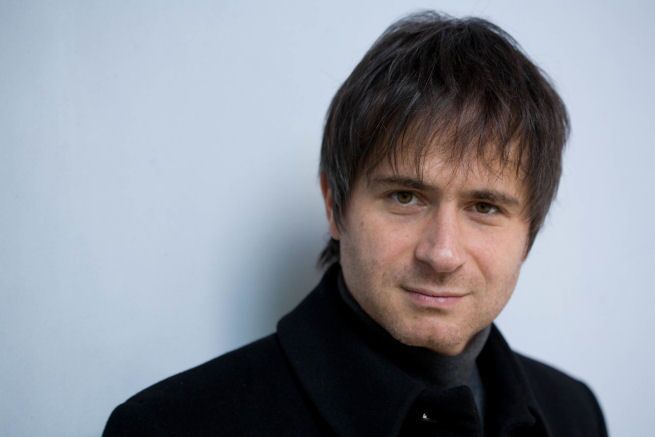Anderszewski brings insight, poetic touch to thoughtful program
Opening a program with music of Bach is nothing unusual. But when was the last time you heard a pianist close a recital with Bach?
Always his own man, Piotr Anderszewski did both in his return to Symphony Center Sunday afternoon. In his first Chicago appearance in nine years, the Polish pianist offered a characteristically thoughtful and understated program that largely avoided flash and surface brilliance—as it to say, “Let the piano pounders compete to see who can play fastest and loudest; I’m doing something else.”
The 2002 Gilmore Artist Award winner framed the afternoon with two English Suites by Bach, leading off with No. 3 in G minor. Anderszewski takes a straightforward stylistic approach to Bach, with boldly projected playing, contrapuntal lines clear and bracing. Yet within that esthetic he consistently finds a way to individually shape and characterize the music: a brightly buoyant Prelude, quickish, unsentimental Allemande, impish and playful Courante.
He began the Sarabande in stately and dignified fashion. Just as one began to think that the playing was a bit on the cool side, Anderszewski slowed the pace, segueing into a spacious rendering that probed a striking depth of expression, with an even more subtle rubato and expansive phrasing in the repeat. An insouciant Gavotte and fleet and virtuosic Gigue rounded off the suite.
Music of Poland’s greatest composer is de rigueur for any national pianist and made up the center of Andersewski’s program, starting with Chopin’s Three Mazurkas, Op. 56, his final set in the genre. The pianist kept undue sentiment at bay in No. 1 in B major, playing with fluidity in the faster second theme yet subtly marking the frequent key-shifting signposts. The folkish influence was strongly accented in No. 2 in C major and his subdued take on the elusive No. 3 put across the rhapsodic sweep while holding the poetic and dramatic sides in a fine equilibrium.
More impressive still was Anderszewski’s take on Chopin’s Polonaise Fantasie in A flat major. Like Schubert in his final sonatas, one feels the composer pushing at the boundaries of 19th-century form and even tonality in this music. Chopin’s last major piano work sounds unsettling even to 21st-century ears, and Anderszewski drew out the strange harmonic cadences and off-center rhythms with an uncommonly elasticity of legato, the sudden virtuosic bursts as jarring as the elegiac expression was affecting.
After intermission, Anderszewski turned to music of Leoš Janáček with Book II of On an Overgrown Path. The pianist had the measure of these moody, elliptical miniatures, bringing out the florid development, marcato snap and Moravian folk flavor.
Bach’s English Suite No. 6 in D minor closed the afternoon. Here too there were wonderful touches with an impressionistic Allemande, a witty, tripping Gavotte and lightning bravura in the closing Gigue.
Yet again it was the Sarabande that stood out. Anderszewski unfolded this inward music with a rapt elevated serenity, rendered with great feeling and delicacy. Unfortunately, the pianist’s most beautiful playing of the afternoon was continually disrupted by a loud hacking cougher in the right lower balcony. Anderszewski demonstrated great professionalism in keeping both his concentration and his composure.
The strong applause and repeated ovations brought Anderszewski back out repeatedly until he offered a single encore–a spare melancholy take on Bartók’s Three Hungarian Folksongs from the Csík District.
Posted in Uncategorized



